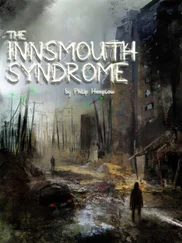But last week, when I saw her in the hospital, her mannerism was gone. Her eyes were no longer monitored. A curious business. I’d have noticed it even if I were seeing her for the first time. Women are generally careful of their eyes. She simply gazed at me, not boldly, but with a mild, unfocused gaze. She responded readily enough, but in monosyllables and short phrases, and now and then gave a little start as if she had in some sense or other come to herself. Then she’d drift off again.
To summarize her history in a word or two: She was a New Englander, a Bennington graduate, a shy but assured person who married a high-born, freewheeling Louisiana Creole whom she met at Amherst, a high-roller later in oil leases and real estate. So here she found herself, set down in this spanking new Sunbelt exurb, in a new “plantation-style” house, in a new country club, next to number-six fairway. All at once she became afraid. She was afraid of people, places, things, dogs, the car; afraid to go out of her house, afraid of nothing at all. There are names for her disorder, of course — agoraphobia, free-floating anxiety — but they don’t help much. What to do with herself? She did some painting, not very good, of swamps, cypresses, bayous, Spanish moss, egrets, and such. I thought of her as a housebound Emily Dickinson, but when I saw her on the couch in my office — she had made the supreme effort, gotten in her car, and driven to town — she looked more like Christina in Wyeth’s painting, facing the window, back turned to me, hip making an angle, thin arm raised in a gesture of longing, a yearning toward — toward what?
In her case, the yearning was simple, deceptively simple. If only she could be back at her grandmother’s farm in Vermont, where as a young girl she had been happy.
She had a recurring dream. Hardly a session went by without her mentioning it. It was worth working on. She was in the cellar of her grandmother’s farmhouse, where there was a certain smell which she associated with the “winter apples” stored there and a view through the high dusty windows of the green hills. Though she was always alone in the dream, there was the conviction that she was waiting for something. For what? A visitor. A visitor was coming and would tell her a secret. It was something to work with. What was she, her visitor-self, trying to tell her solitary cellar-bound self? What part of herself was the deep winter-apple-bound self? What part of herself was the deep winter-apple-smelling cellar? The green hills? She was not sure, but she felt better. She was able to leave the house, not to take up golf or bridge with the country-club ladies, but to go abroad to paint, to meadows and bayous. Her painting got better. Her egrets began to look less like Audubon’s elegant dead birds than like ghosts in the swamp.
I contrived that it crossed her mind that her terror might not be altogether bad. What if it might be trying to tell her something, like the mysterious visitor in her dream? I seldom give anxious people drugs. If you do, they may feel better for a while, but they’ll never find out what the terror is trying to tell them. At any rate, it set her wondering and made her life more tolerable. She wasn’t afraid of being afraid. We were getting somewhere.
Now here she is two years later, back in the hospital, again facing the window. But no yearning Christina she. More like a satisfied Duchess of Alba, full round arm lying along sumptuous curve of hip.
“Mickey,” I said.
She turned to face me with a fond, unsurprised gaze, eyes not quite focused, not quite converging.
“Well well well,” said Mickey. “My old pal Doc.”
Never , not in a state of terror or out of it, would she have called me that. She was one of the few patients who called me Tom.
“You’re looking very well, Mickey.”
I must have been leaning toward her, for my hand was propped on the edge of her bed. Her arm fell on my hand, the warm ventral flesh of her forearm imprisoning my fingers.
“Well, yes.” She lay back, settling her body, giving the effect somehow of straddling a little under the covers.
I remember registering disappointment. The flatness of her gaze gave the effect one senses in some women who have given up on the mystery of themselves and taken somebody else’s advice: Be bold, be assertive.
“Old Doc.” Her chin settled into her full throat, luxuriating. “You really did it, didn’t you?”
“Did what?”
“Blew it.”
“You mean—”
“Do you think people don’t know where you’ve been for two years?”
It is not necessary to reply. She has already drifted, eyes unconverged, gazing past me.
“Mickey, did you want this consultation, or was it Dr. Comeaux’s idea?”
“Old Doc.” My fingers are still imprisoned under her arm. “I was always on your side. I defended you.”
“Thank you.”
“I’m just fine, Doc.”
“You mean you didn’t send for me?”
“Mickey’s glad to see you, Doc. Come by me.”
“I’m by you.” Come by me. That’s Louisiana talk, not New England. “If you’re feeling fine, Mickey, what are you doing here?” I look at her chart. She’s not on medication.
“I got it all, Doc. Did you know I was a rich bitch?”
“Yes, I knew that.”
“Did you know Durel and I own the biggest hunter-jumper ranch in the parish?”
“Yes, I knew that. Then why—”
“We got it made. You want to know the name?”
“The name?”
“Bar-in-Circle Ranch.” She released my hand and showed me the bar and circle with her fingers. She winked at me, like a schoolchild who’s just learned a dirty joke. “You like that?”
“Sure.” I’m reading her chart. “Mickey, it doesn’t seem that things are so fine here. It seems there was an incident at the ranch with a groom, a fire, your prize stallion destroyed in the fire.”
“He was coming on to me,” said Mickey idly.
“According to this, he was a thirteen-year-old boy and the complaint by his parents was that it was you coming on to him.”
She shrugged, but was not really interested enough to argue. Am I mistaken or is there not a sort of horsewoman’s swagger as she moves her legs under the covers? “That stallion was a killer, Doc. Now. How about you?”
“What about me?”
“You know where the ranch is.”
“Yes.”
“And you got your troubles.”
“So?”
“So you come on out by me. Durel likes you too.”
As I listen to her and flip through the chart, something pops into my head. For some reason — perhaps it is her disconnectedness — she reminds me of my daughter as a four-year-old. It is the age when children have caught on to language, do not stick to one subject, are open to any subject, would as soon be asked any question as long as one keeps playing the language game. A child does not need a context like you and me. Mickey LaFaye, like four-year-old Meg, is out of context.
“Mickey, what is today?”
“Monday,” she says, unsurprised. I am right. She gives me the day and the date willingly.
Then it was that I had my wild idea, my piece of luck — perhaps it was part of my own nuttiness — which first put me on the track of this strange business.
“Mickey,” I asked her, “what date will Easter fall on next year?”
Again no surprise, no shifting of gears from one context to another. There is no context. What I do notice is that for a split second her eyes go up into her eyebrows, as if she were reading a printout.
She gives me the date. I wouldn’t know, of course. Later I looked it up. She was right.
She gives me other dates. They were right. I ask her where St. Louis is. She tells me where St. Louis is. Now everybody knows where St. Louis is, but people generally don’t answer the question Where is St. Louis? asked out of the blue, without wanting to know why you ask, unless they are playing Trivial Pursuit.
Читать дальше












